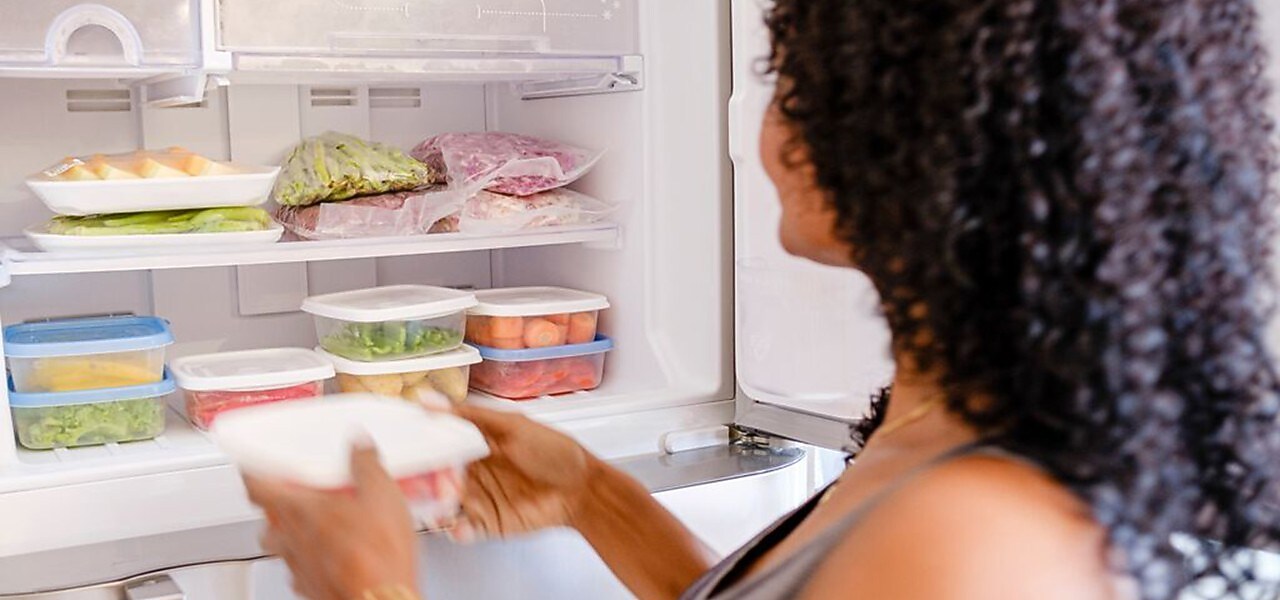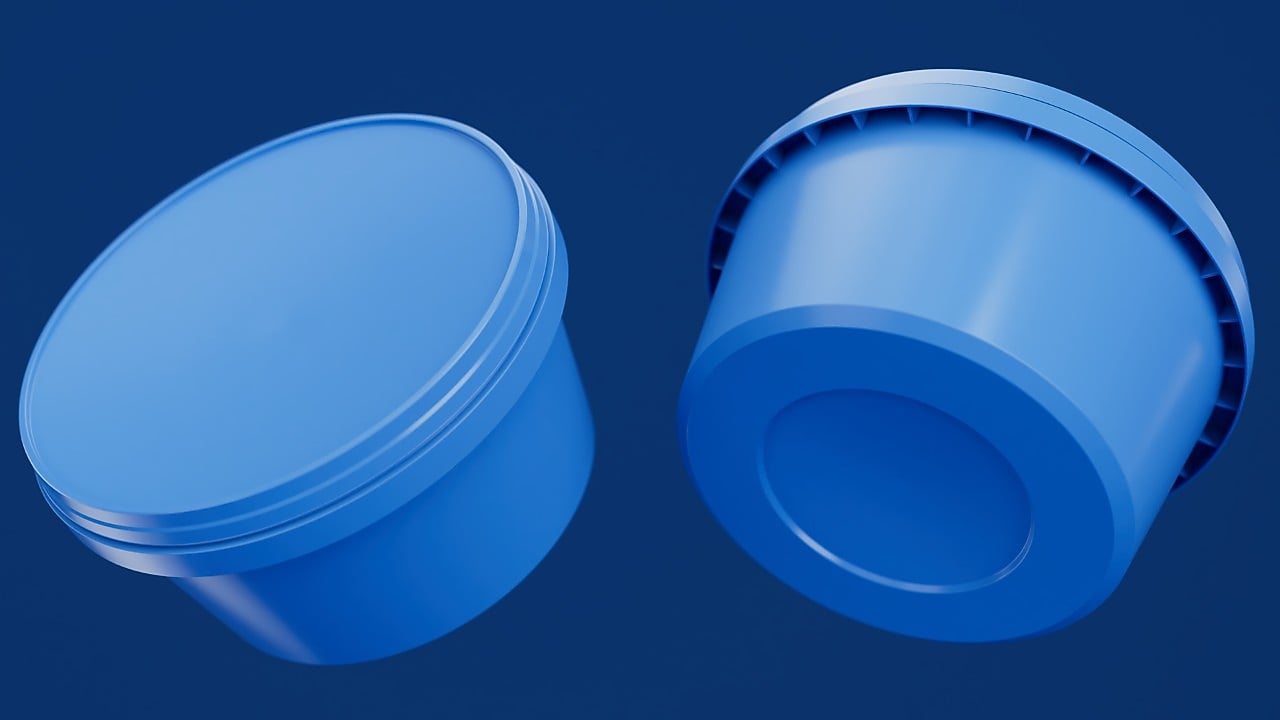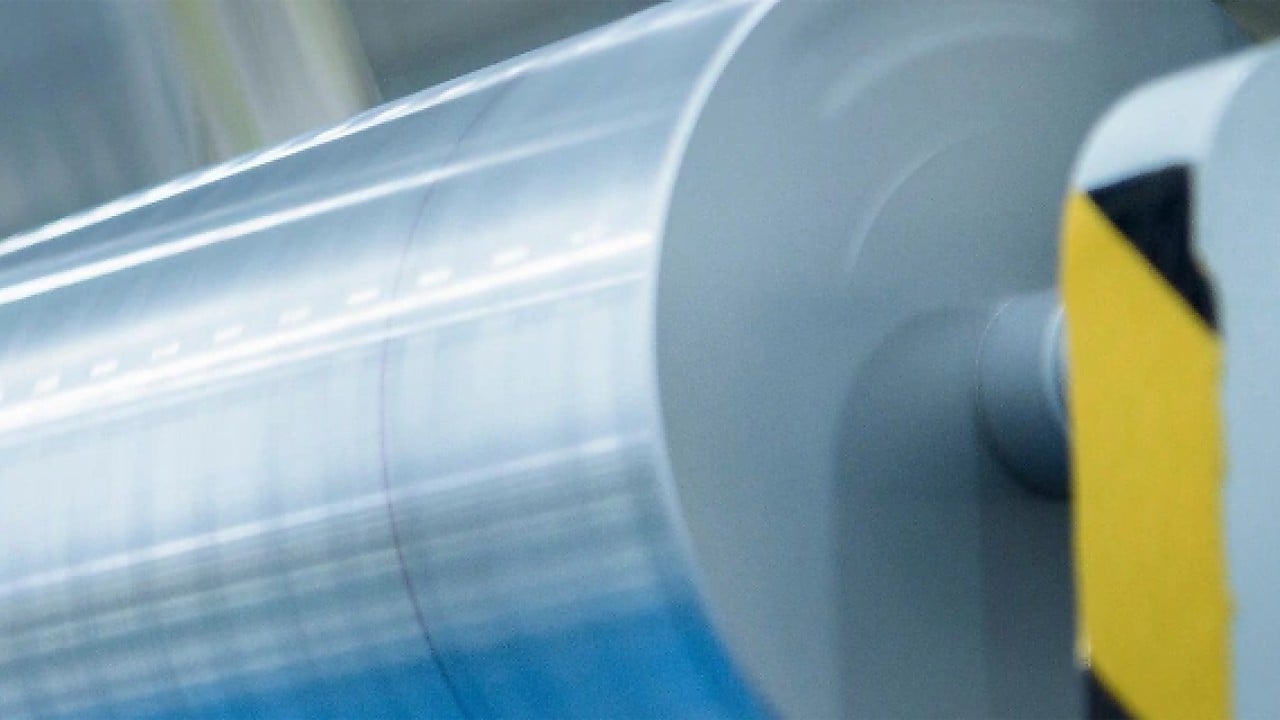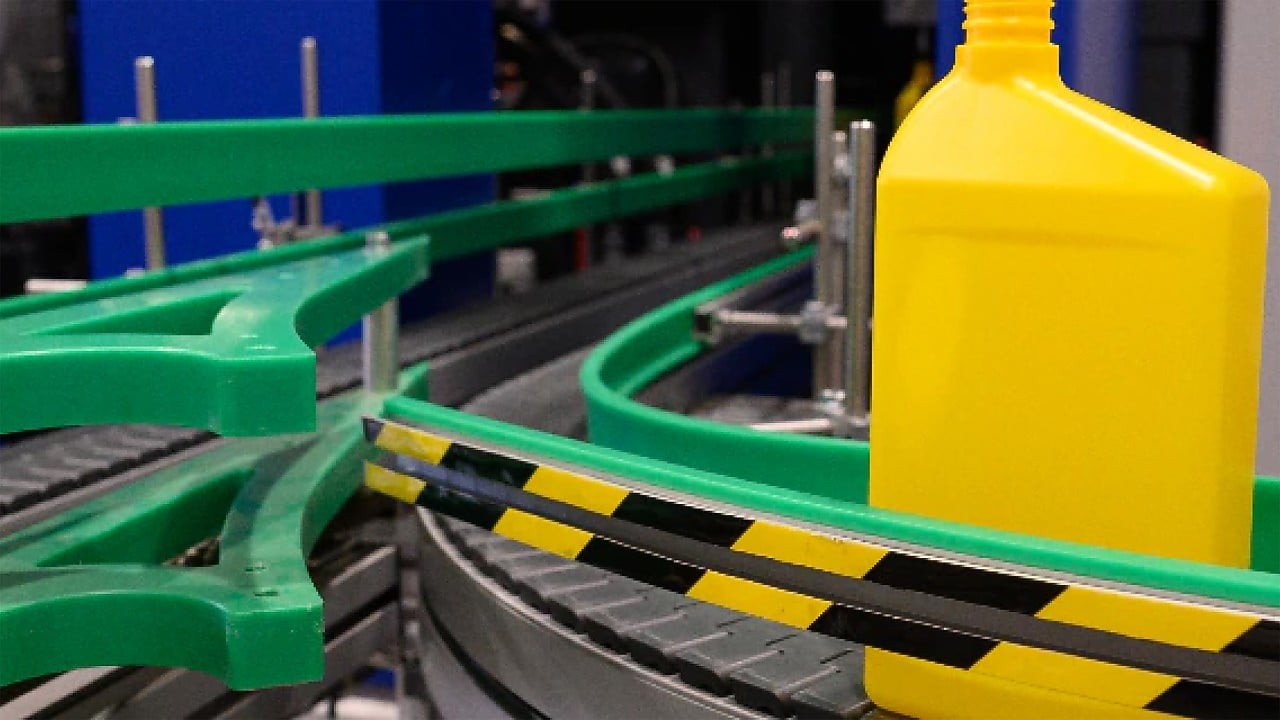
Food packaging
From plastic films to milk jugs, applications for plastic in food and beverage continue to grow across every type of packaging. At Shell Polymers, we understand the need to keep up with this demand while producing consistent and high-quality polymers that keep consumers safe. Through our LLDPE and HDPE, we can help converters maximize the shelf life of food and meet consumer expectations for sanitary, secure and sustainable polymer packaging material.

2025 industry trends shaping the future of food packaging materials
The plastics industry is competitive and keeping pace with packaging industry trends is crucial for growth. In our Shell Polymers 2025 Trend Report, we’ll explore trends, threats and opportunities for converters, including a look at shifts that affect food manufacturing companies, grocery stores and brands producing processed food, soft drinks, and other packaged goods.
Product summary
View blow molding product details
View blow molding product details
| Product | Melt index |
Density |
Product details |
|---|---|---|---|
| Shell Polymers HDPE 46BG6HLU | 6.0 HL | 0.946 | View technical properties |
| Shell Polymers HDPE 48BG9HL | 9.0 HL | 0.948 | View technical properties |
| Shell Polymers HDPE 55B035 | 0.35 | 0.955 | View technical properties |
| Shell Polymers HDPE 55B035A | 0.35 | 0.955 | View technical properties |
| Shell Polymers HDPE 63B072 | 0.72 | 0.963 | View technical properties |
View film extrusion product details
View film extrusion product details
| Product | Melt index |
Density |
Product details |
|---|---|---|---|
| Shell Polymers LLDPE 18F1B | 1.0 | 0.918 | View technical properties |
| Shell Polymers LLDPE 18F1B1 | 1.0 | 0.918 | View technical properties |
| Shell Polymers LLDPE 18F1B2 | 1.0 | 0.918 | View technical properties |
| Shell Polymers LLDPE 18F2B | 2.0 | 0.918 | View technical properties |
| Shell Polymers LLDPE 19F3B | 2.7 | 0.919 | View technical properties |
View injection molding product details
View injection molding product details
| Product | Melt index |
Density |
Product details |
|---|---|---|---|
| Shell Polymers HDPE 48N5 | 5.0 | 0.948 | View technical properties |
| Shell Polymers HDPE 52N7 | 6.5 | 0.952 | View technical properties |
| Shell Polymers HDPE 52N10 | 10.0 | 0.952 | View technical properties |
| Shell Polymers HDPE 54N20 | 20.0 | 0.954 | View technical properties |
| Shell Polymers HDPE 65N8 | 8.2 | 0.965 | View technical properties |
View safety data sheets
View safety data sheets
| Document title | Document |
|---|---|
| Shell Polymers HDPE | View document |
| Shell Polymers LLDPE | View document |
| Shell Polymers Polyethylene Wide Spec or Offspec | View document |
Product 101
At Shell Polymers, our polyethylene resins help protect quality and optimize production across various types of packaging and types of food packaging materials. Explore the technical details below to compare melt index, density and documentation for each of our food-grade options.

Density is reflected by the first two numbers found in the product name, which is 18 in this instance. These numbers represent the last two significant digits of the density value. See examples below.
18 = 0.918 density
53 = 0.953 density
63 = 0.963 density
Shell Polymers in real life
Whether we’re helping customers troubleshoot any technical issues in real-time, interacting with the communities around us or connecting with colleagues, we’re always focused on building (Real)ationships. It’s how we deliver reliable, high-performance food packaging materials that meet real-world demands.
Reliability from farm to fridge
At Shell Polymers, we believe the best (Real)ationships are built on real shared values and a commitment to excellence. That’s why we’re proud to partner with United Dairy, a family-owned staple of Pennsylvania’s dairy industry since 1954.

A (Real)ationship built on community
Our collaboration with United Dairy goes beyond supplying plastics for product packaging—it’s about creating real connections and strengthening the entire supply chain.
Related conversion processes
Different conversion processes can take the same polymers and transform them into a wide variety of plastic products—from plastic films and milk jugs to food packaging materials used across many types of packaging.

Blow molding
Blow molded HDPE is used to make hollow products such as industrial containers and drums, liquid containers and more.

Film extrusion
Film extruded LLDPE is used to make industrial and food packaging, stretch films and more.

Injection molding
Injection molded LLDPE and HDPE is used to make caps, bottle closures, toys and more.

Stay informed with Shell Polymers
Our monthly newsletter keeps plastic converters like you up to date with the latest on food packaging materials, industry trends, and technical tips from our experts—delivered straight to your inbox.
Have questions about food packaging materials? Let’s connect
Expert insights on food packaging
The power of multi-layer blown film technology
Is upgrading to a multilayer blown-film line really worth it? Despite the upfront cost, multi-layer machines offer faster output, higher quality and more.

Coextrusion & the future of blown film
Learn about the advantages of coextrusion, from improved product performance to reduced costs and a more sustainable packaging solution for grocery store fixtures.

High-quality resin can increase blow molding machine production
Improving production is always a top priority for converters and resin plays an important role in this. Learn how suppliers can help ensure resin meets a converter’s quality needs.

How polyethylene packaging keeps consumer products safe
PE packaging is vital for a wide variety of products—including food and beverages, where LLDPE wraps and HDPE jugs and bottles keep ingredients from spoiling.